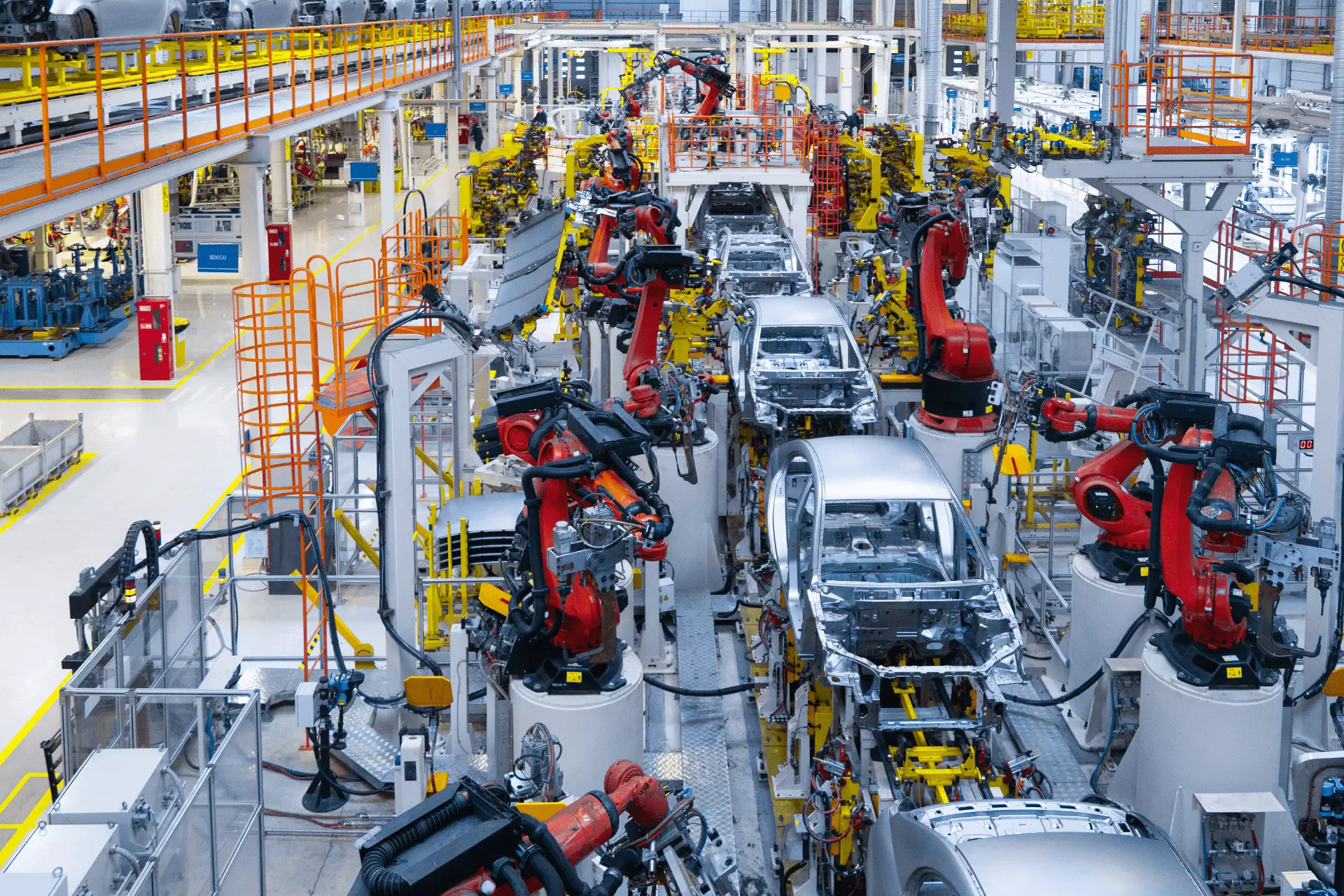Manufacturing is one of the more complicated and labour-intensive industries. Some steps in manufacturing involve employees working on repetitive tasks when skills get used more effectively. For such repetitive tasks, manufacturers can use robotic process automation. RPA in Manufacturing to operate more intelligently, make automated industrial processes more efficient, and eliminate human errors.
The manufacturing sector is associated with the widespread approval of robotic process automation (RPA). RPA implementations involve using robots to carry out packaging, testing, and assembly tasks. RPA has numerous automation applications in back-office operations, inventory management, supply chain management, customer service operations, and other areas in addition to manufacturing. According to industry research, these manual efforts result in a close to 30% loss. Therefore, RPA gets implemented across all manufacturing operations additionally the manufacturing process.
Structured tasks are completed more accurately, consistently, and efficiently by RPA software. In today’s world, numerous manufacturing industries have extensive procedures that have to be precisely followed. These procedures consume a significant amount of time and, most importantly, result in errors that can be significant at times. When implemented, robotic process automation tools to automate the processes is one approach to resolving this issue. The fact that RPA can carry out tasks accurately without missing any steps or making any errors is its greatest strength.
RPA use cases in manufacturing.
RPA can perform many activity tasks because it can imitate human behaviour. The following is a list of manufacturing-related RPA use cases:
Automate Administrative
Tasks Manufacturing administrative tasks are time-consuming. Employees can concentrate on other crucial tasks when these reduce in importance. The manufacturing industry has a lot of administrative tasks that get automated.
Tasks that are simple to automate:
- Attendance, action items, and meeting minutes are all recorded.
- FAQ emails get answered.
- Meetings get scheduled.
- Supplies get ordered.
- Computer problems get predicted.
- Invoices made and filed.
Maintaining records on raw materials:
This is one of the most fundamental examples of RPA being used to perform routine tasks. The raw material record gets maintained that there are enough raw materials to continue production or that if there aren’t enough, some immediate steps are necessary. Employees perform this task manually and must regularly review and update the records. This can be done automatically by reading the scanned documents and upgrading them in real time with RPA.
Inventory Management
A lot of paperwork is involved in inventory management in the manufacturing sector. Robotic Process Automation can automate emails, file invoices, dispatch procedures, and digitize paperwork to automate inventory management.
For inventory managers to monitor these levels and make better decisions based on historical data, RPA-based automation provides them with real-time inventory level data. Which increases communication, lowers expenses, and increases operational efficacy.
Record keeping and verification of employee credentials
Any business should have access to all pertinent employee data at all times. Numerous factories and manufacturing companies use many procedures to check the credentials of their employees. These credentials include, among other things, verifying their employee ID and issuing badges to new employees. The credentials of each employee get carefully checked before the badges get distributed. This takes a long time and is also prone to human error. All employee documents can be scanned and stored in a centralized database using RPA bots that get easily accessed at any time.
Robotic Process Automation can also monitor and maintain employee attendance, performance, leave, and salary records, among other things.
Processing Invoices
Companies waste time acquiring, assigning, and approving invoices by employing manual procedures. When an invoice is received, invoice processing begins and concludes with the completion and recording of the payment.
- The invoice should get entered into the appropriate records.
- The invoice must get sent for approval.
It is a time-consuming procedure with more room for human error.
A more effective method for processing invoices is robotic process automation or RPA. All the data gets updated to the appropriate systems without human intervention. This process of collecting data from vendor invoice data and sending it to the target system gets carried out at predetermined intervals with automation.
Waste management
One of the most important aspects of reducing production costs is waste management. Waste management can benefit manufacturing businesses from RPA. By digitizing numerous repetitive processes with RPA, manufacturers can identify quality issues with their products. It monitors the waste produced during production and adjusts the process accordingly. Additionally, it would assist in locating areas resulting in excessive waste and taking corrective measures. Furthermore, manufacturers using RPA to manage their waste can save money and reduce their environmental impact while maximizing their resources.
Outworks Solutions have been working to improve manufacturing operations. Our objective with RPA Solutions for Manufacturing is the ease of operations in Inventory management, invoicing, and much more. And with our RPA use cases in manufacturing, we on the potential the implementation of technology.
Benefits of RPA in manufacturing
Typically, 70% to 80% of the rule-based procedure are a part of automation. Without human intervention rule oriented repetitive tasks get handled by RPA bots.
RPA bots in manufacturing can:
- Reduce the time spent by humans performing routine tasks,
- Shorten the time to market (TTM),
- Improve data quality, and
- Reduce process errors by minimizing human intervention.
Additionally, the data RPA bots collect the input into software that creates a digital twin of an organization and manufacturing analytics tools to evaluate the organization’s overall progress, identify gaps, and identify opportunities for improvement.
How Intelligent Automation & Automated Industrial Process Is Helping Manufacturing Businesses Win
The global manufacturing industry will face significant business obstacles in the coming years. International supply chain uncertainty, tax and transfer pricing reforms, a push for sustainability, a shortage of raw materials and components, and ageing IT infrastructures are among these.
The pandemic demonstrated the significance of adaptability in such challenging circumstances. Innovative manufacturers responded by reorienting their operations to meet new product demand in the market or adopting new delivery methods.
Manufacturers must focus on cost savings, maintaining market share, building agile digital supply chains, and constructing effective partner ecosystems as these unpredictable economic conditions persist.
What applications do manufacturers have for RPA and intelligent automation?
Manufacturing is more prepared than many other industries to use digital workers to their full potential. As early adopters of robots on the production line, manufacturers know how automation can effectively maximize resources and meet customer needs.
Even though many manufacturers have made significant progress toward automating their operations, there are still obstacles. Additionally, there are numerous opportunities in the industry for automation due to issues such as disconnected silos and manual processes in the supply chain.
The manufacturing industry’s RPA use cases are far more compelling than just analysis. At various stages of operations, it’s about cutting costs and increasing efficiency. RPA addresses all these issues, including fraud detection, intelligent customer service desk, data analytics, support for industrial IoT devices, and enterprise integration. At the same time, it opens up opportunities for a new breed of intelligence workers in the industry who can handle business needs and find connections to help management make better decisions.



